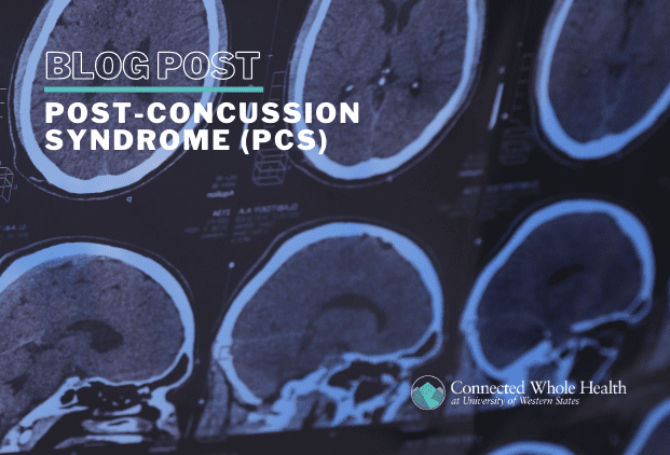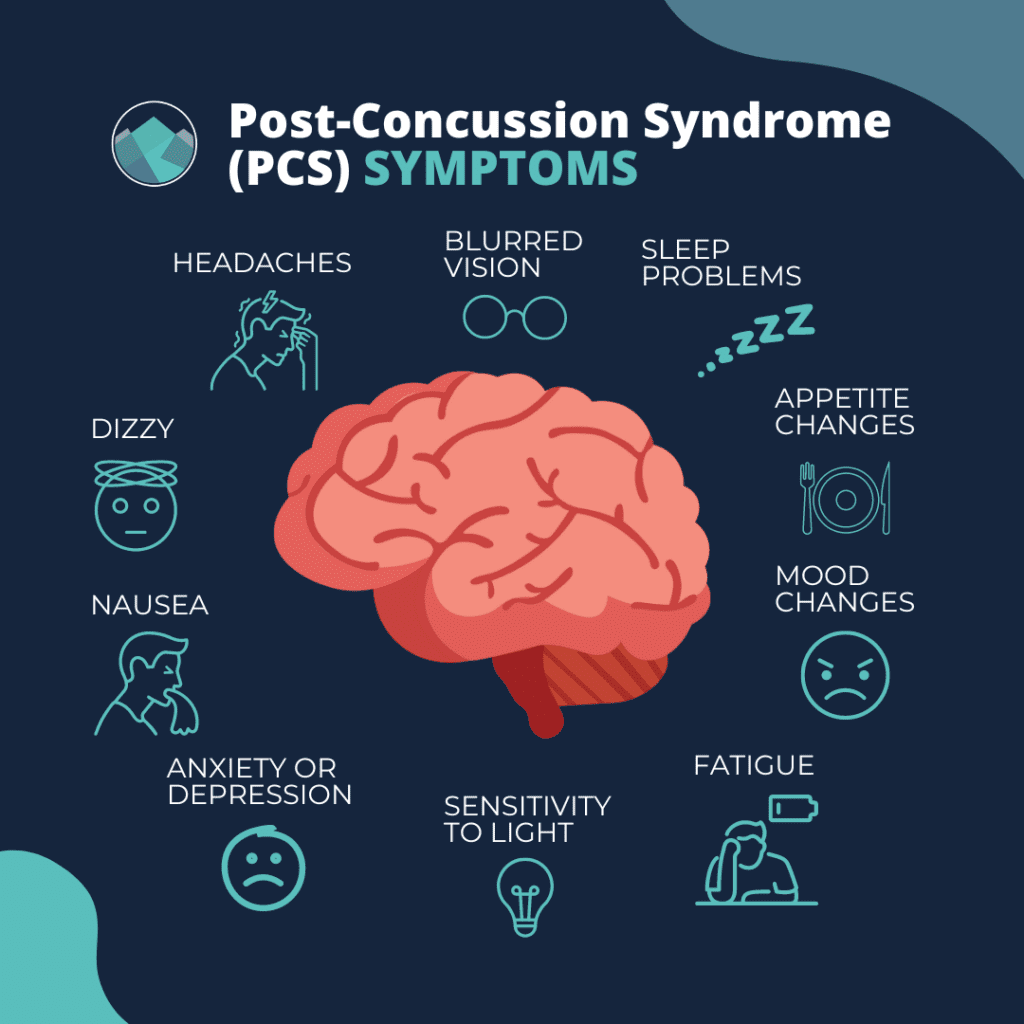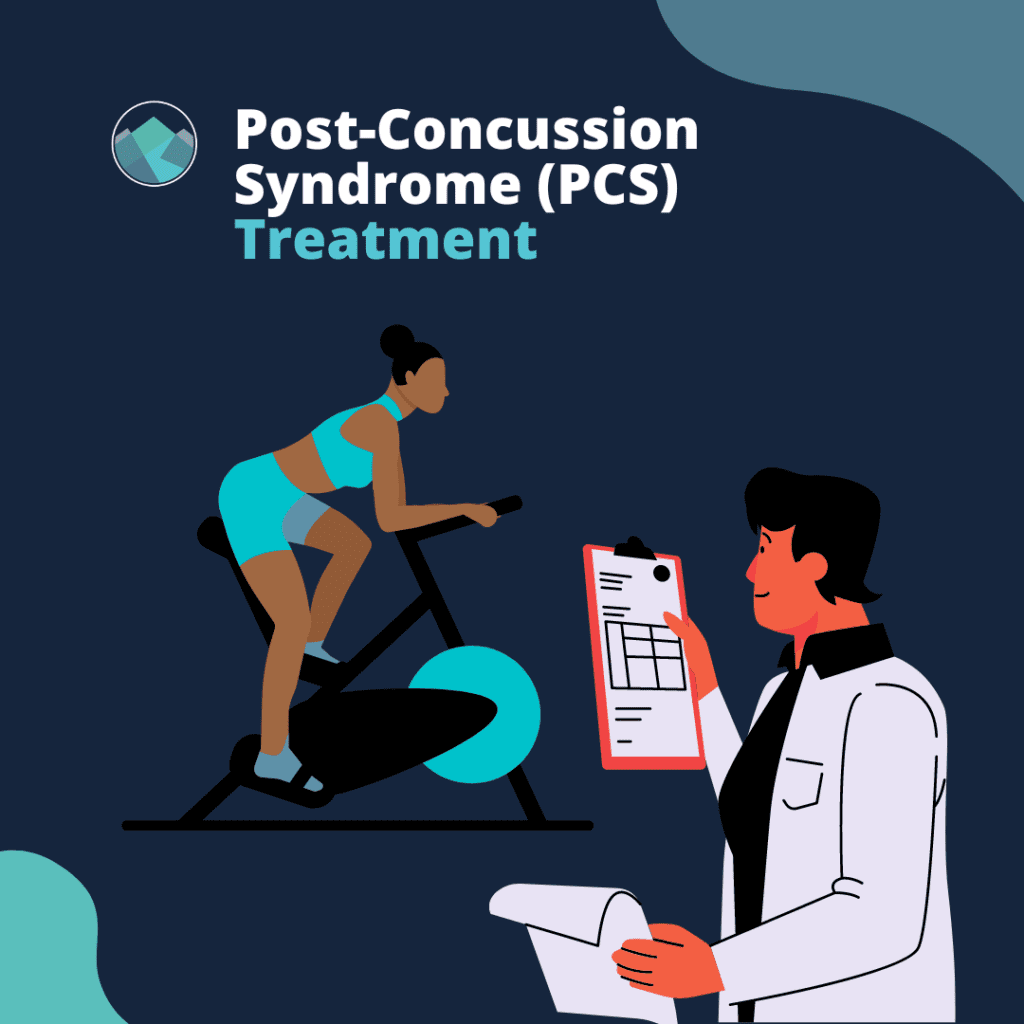
May 4, 2023
Post-concussion syndrome (PCS) is a complex disorder that occurs after a person experiences a mild traumatic brain injury (mTBI), also known as a concussion. It is a cluster of symptoms that linger beyond the typical recovery time of a concussion, which is typically 2-4 weeks.
Demographics: PCS can occur in anyone who has experienced a concussion or mTBI, but it is more common in the following populations:
- Athletes who participate in contact sports such as football, hockey, and soccer
- Military personnel who have experienced blast injuries or other head injuries in combat
- Victims of motor vehicle accidents
- Individuals who have experienced falls or other blunt-force trauma to the head
- Current cohort studies and analysis show that women are at greater risk for persistent PCS
Causes: PCS is caused by the brain’s inability to heal properly after a concussion. The exact cause is not fully understood, but it is believed to involve a combination of factors, including inflammation, neurotransmitter imbalances, and changes in brain function.

Signs and Symptoms: The signs and symptoms of PCS often varies from each individual, but they often include a combination of the following:
- Headaches
- Dizziness or vertigo
- Fatigue or lethargy
- Difficulty concentrating or remembering
- Irritability or mood changes
- Sleep disturbances
- Sensitivity to light or noise
- Nausea or vomiting
- Blurred vision
- Anxiety or depression
Treatment: There is no specific treatment for PCS, but symptoms can be managed through a combination of medications, therapy, and lifestyle changes. Treatment options may include:
- Vestibular therapy or physical therapy
- Cognitive behavioral therapy
- Early exercise therapy
- Rest and relaxation
- Avoidance of activities that worsen symptoms
- Pain relievers such as acetaminophen or ibuprofen
- Anti-depressants or anti-anxiety medications

Prognosis: The prognosis for PCS depends on the individual’s circumstances. However, symptoms gradually improve over time and eventually resolve completely. Some individuals may continue to experience symptoms for months or even years after the initial injury. Factors that may affect prognosis include the severity of the initial injury, the presence of other medical conditions, and the individual’s age and overall health.
How a chiropractor can help: Chiropractors specialize in the diagnosis and treatment of musculoskeletal disorders, and they may be able to help with some of the physical symptoms that can occur after a concussion, such as neck pain, headaches, and dizziness. Chiropractors may use sub-symptomatic threshold exercise, vestibule-ocular rehabilitation, spinal adjustments, soft tissue therapies, dietary modifications, and other techniques to help improve function, relieve pain, and improve mobility in the affected areas.
✒️ Chief Editor: Dr. Bill Moreau | DC, DACBSP, FACSM | Chief Medical Officer
Citations
Permenter, Cara M., et al. “Postconcussive Syndrome – StatPearls – NCBI Bookshelf.” Postconcussive Syndrome – StatPearls – NCBI Bookshelf, 29 Aug. 2022, https://www.ncbi.nlm.nih.gov/books/NBK534786/
Germann, D., Marshall, C., & Kazemi, M. (2020). Multi-modal management of sport and non-sport related concussion by chiropractic sports specialists: a case series.
The Journal of the Canadian Chiropractic Association, 64(3), 214–226. https://www.ncbi.nlm.nih.gov/pmc/articles/PMC7815178/
“Persistent Post-concussive Symptoms (Post-concussion Syndrome) – Symptoms and Causes.” Mayo Clinic, 18 Jan. 2023, https://www.mayoclinic.org/diseases-conditions/post-concussion-syndrome/symptoms-causes/syc-20353352
